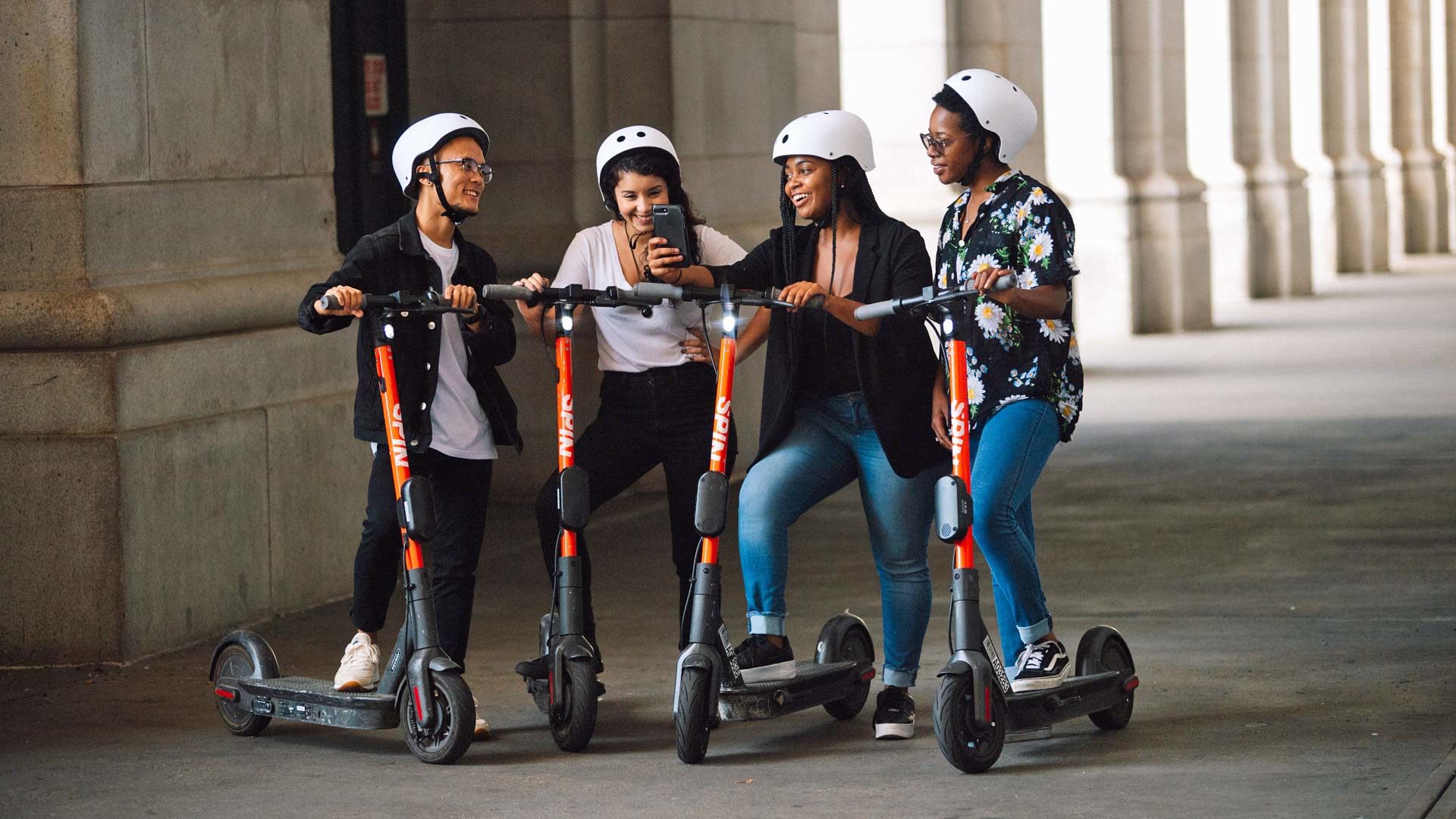
Electric scooters, commonly known as e-scooters, are continuing to grow in popularity across the UK.
Typically combining a lightweight folding frame with an electric motor, they could become the affordable urban mobility vehicle of choice. Many towns and cities are currently hosting trials, evaluating just how well they work.
Let’s take a closer look at e-scooters and the legislation that governs their use.
What exactly is an e-scooter?
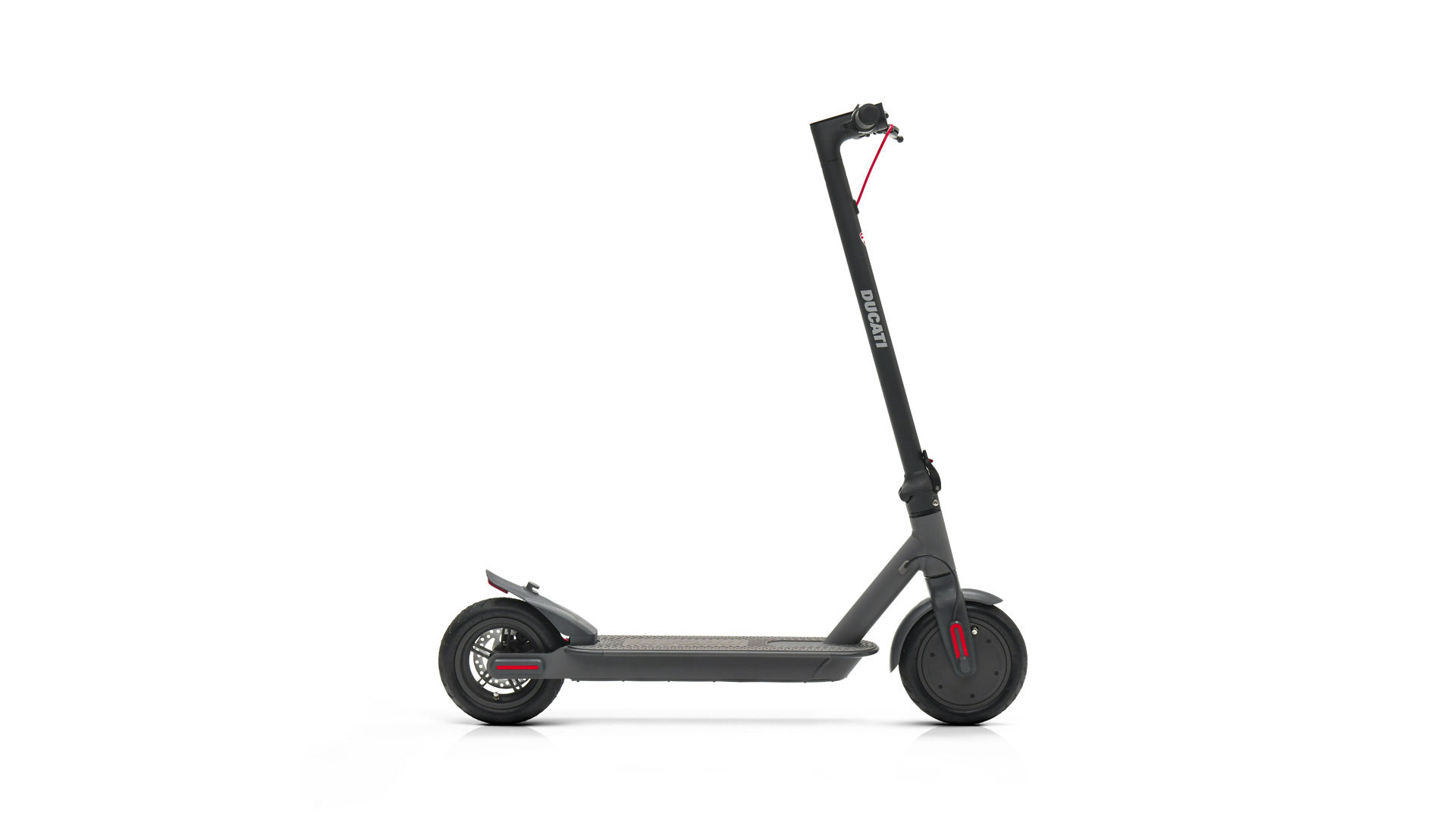
The e-scooter name is applied to battery powered versions of the traditional two-wheeled ‘push along’ scooter.
They were first introduced in the early 2000s, but advances in lithium-ion battery technology have made e-scooters smaller and cheaper to buy. Modern ‘brushless’ electric motors have improved their performance, too.
Riders can also use their feet to ‘kick’ the e-scooter along when needed. When fully charged, certain models can cover up to 50 miles, with top speeds in excess of 15mph.
Is an e-scooter classed as a motor vehicle?
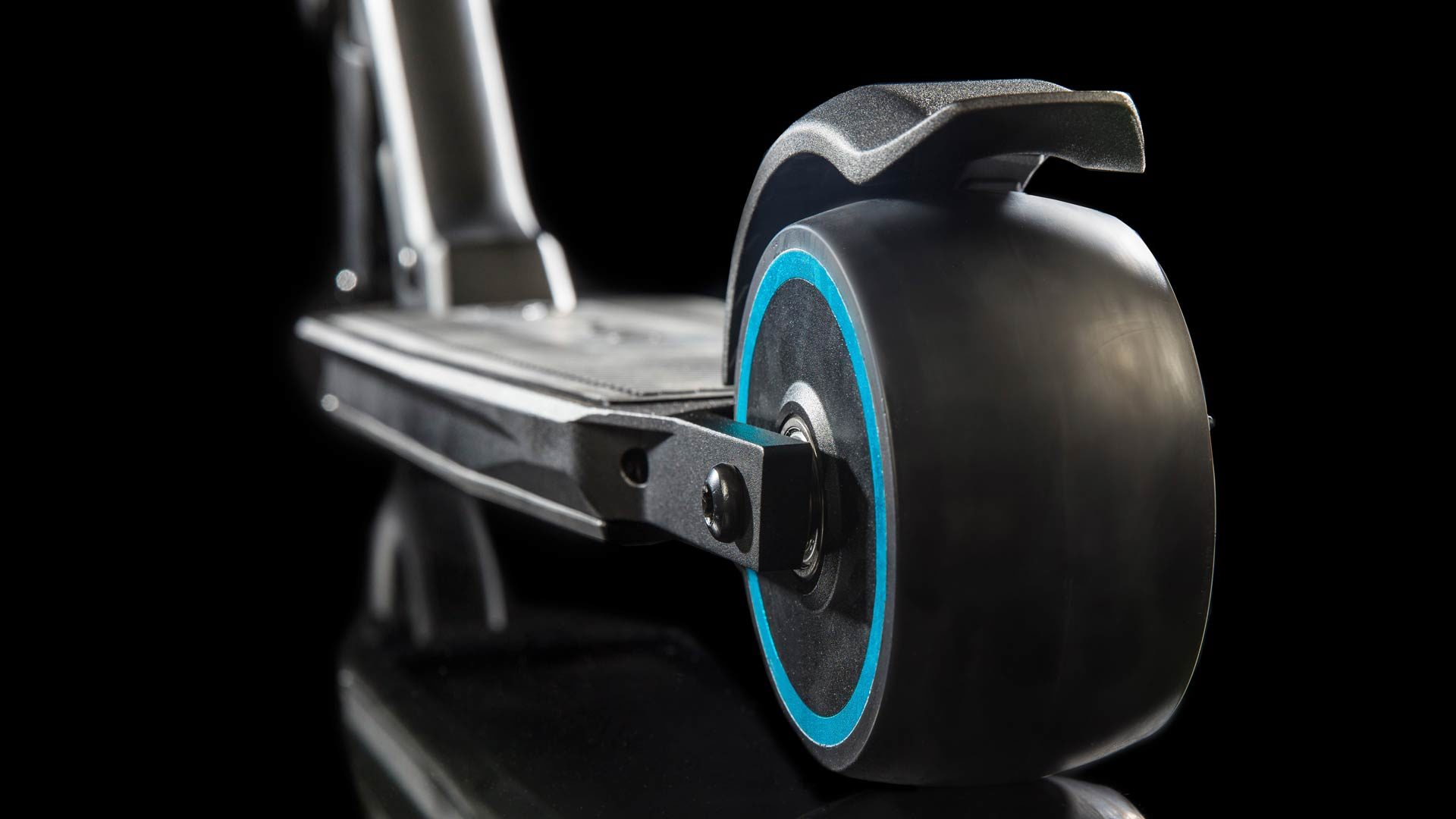
The Road Traffic Act 1988 describes a motor vehicle as being a ‘mechanically propelled vehicle intended or adapted for road use’.
Courts have ruled that e-scooters can be considered as motor vehicles, making them subject to the same rules and requirements as cars and motorcycles.
Government guidance on e-scooters describes them as ‘powered transporters’. This puts them in the same category as Segways and hoverboards, as they can be propelled both manually and mechanically.
Are electric scooters legal to buy in the UK?
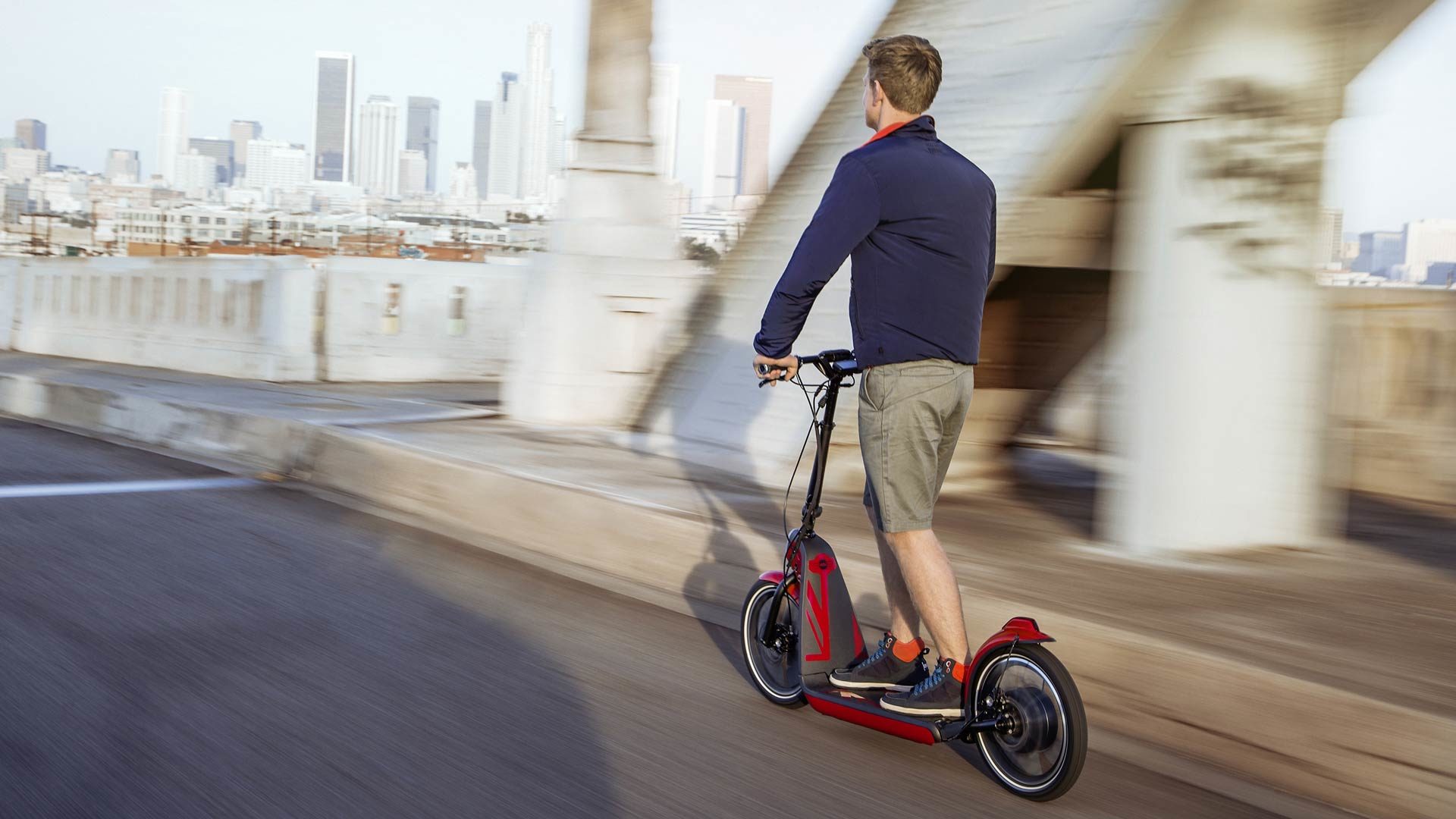
Yes, electric scooters are legal to buy and own in the UK.
Numerous high street and online retailers stock e-scooters, with prices ranging from less than £150 to thousands of pounds. Models are marketed at both children and adults.
Can I ride my e-scooter on the road?
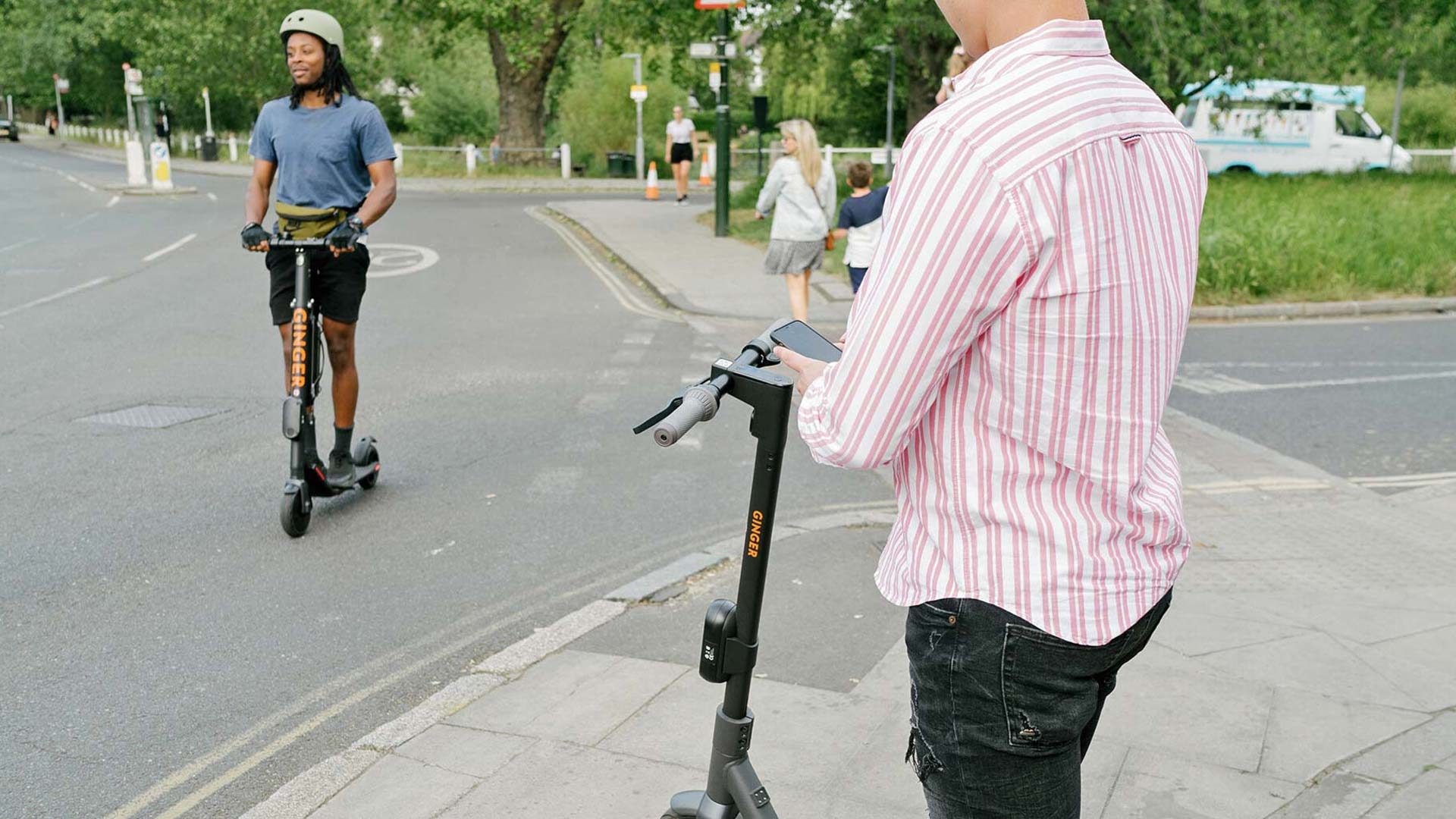
In short, no. To use a motor vehicle legally on the road, it must meet certain legislation and construction requirements. These also apply for e-scooters, meaning they would need to be registered, insured, taxed and comply with all the relevant safety standards.
Unless a privately owned e-scooter, and its rider, could meet all the required legislation, using one on the road is illegal.
Separate rules apply for those used in designated official e-scooter trial areas, where rental e-scooters may be used on the highway.
Can I ride an e-scooter on the pavement?
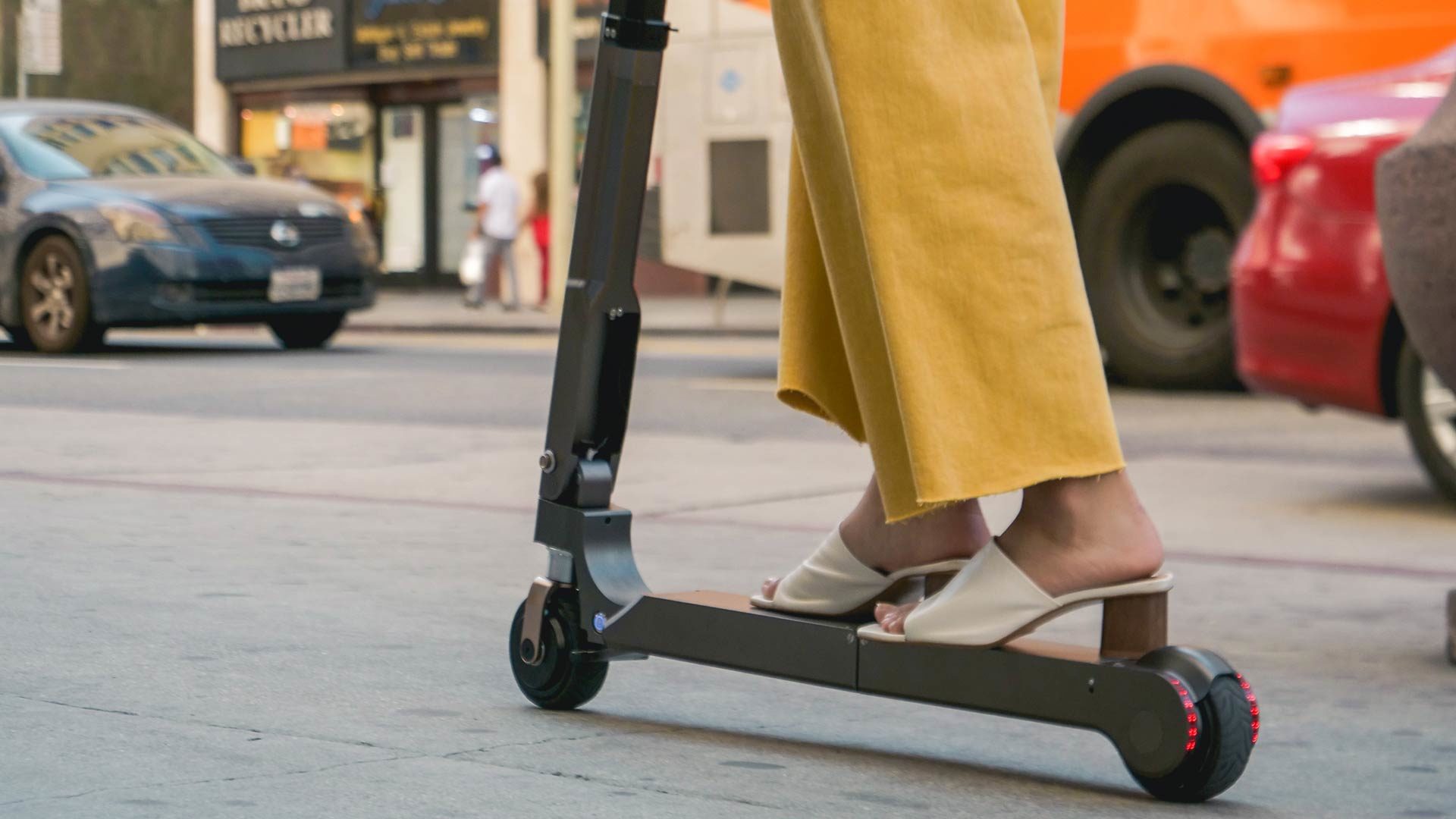
Although the writers of the Highway Act 1835 may not have envisaged the use of e-scooters, section 72 of the act makes it an offence to ‘wilfully ride upon any footpath’.
Use an e-scooter on the pavement in modern times and you run the risk of a fixed penalty notice.
Outside of specific trial areas, the only place an e-scooter can be used legally is on private land. This would need to be with consent of the land owner, and not somewhere open to the public.
Do I need to wear a helmet to ride an e-scooter?
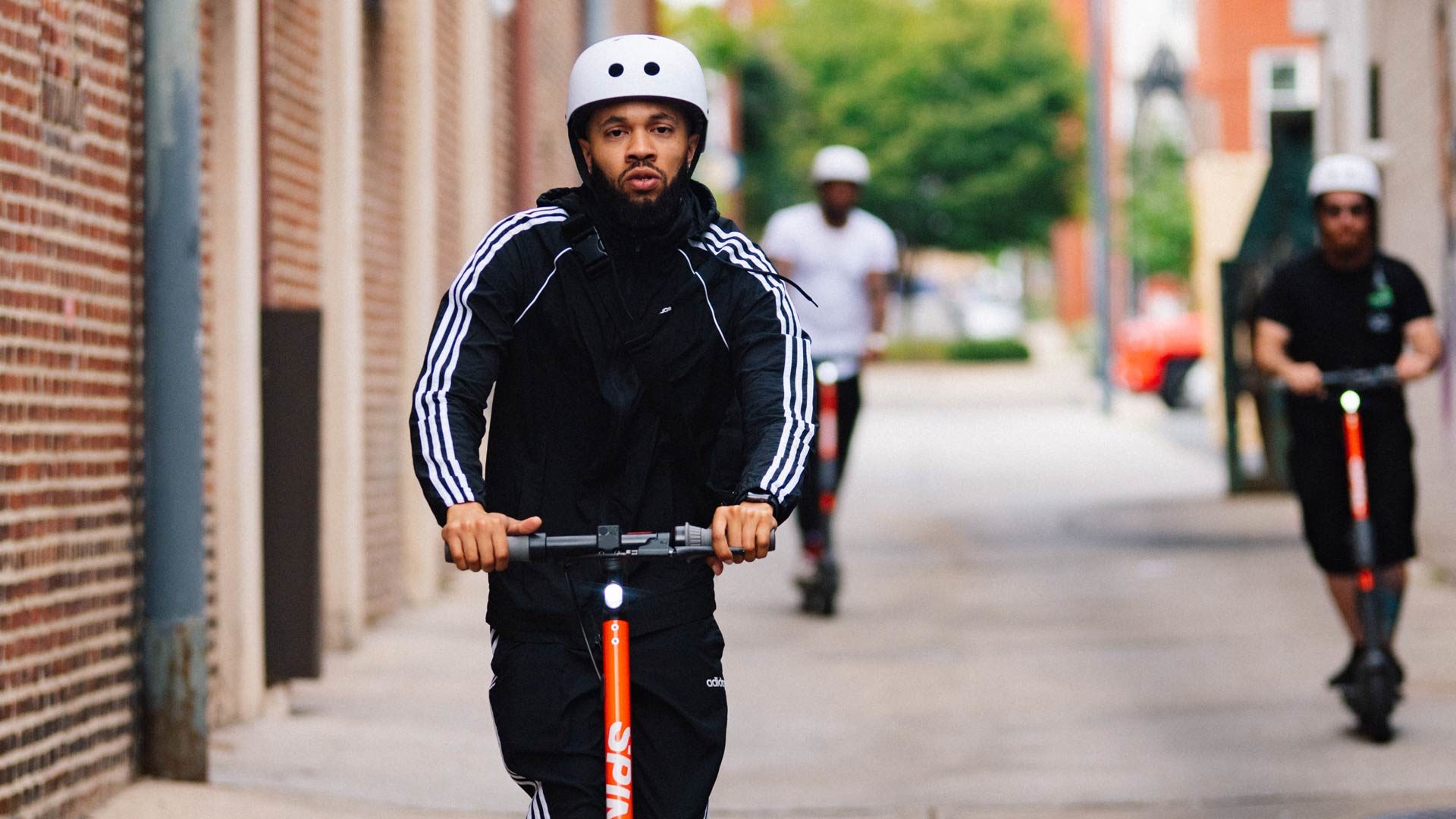
Despite the potential speed of an e-scooter, there is no legal requirement to wear a helmet.
However, official guidance from the Department for Transport recommends wearing a helmet if using a rental trial e-scooter.
For those riding an e-scooter on private land, wearing a helmet is sensible, if not legally required.
Can I be fined for riding an e-scooter in the UK?
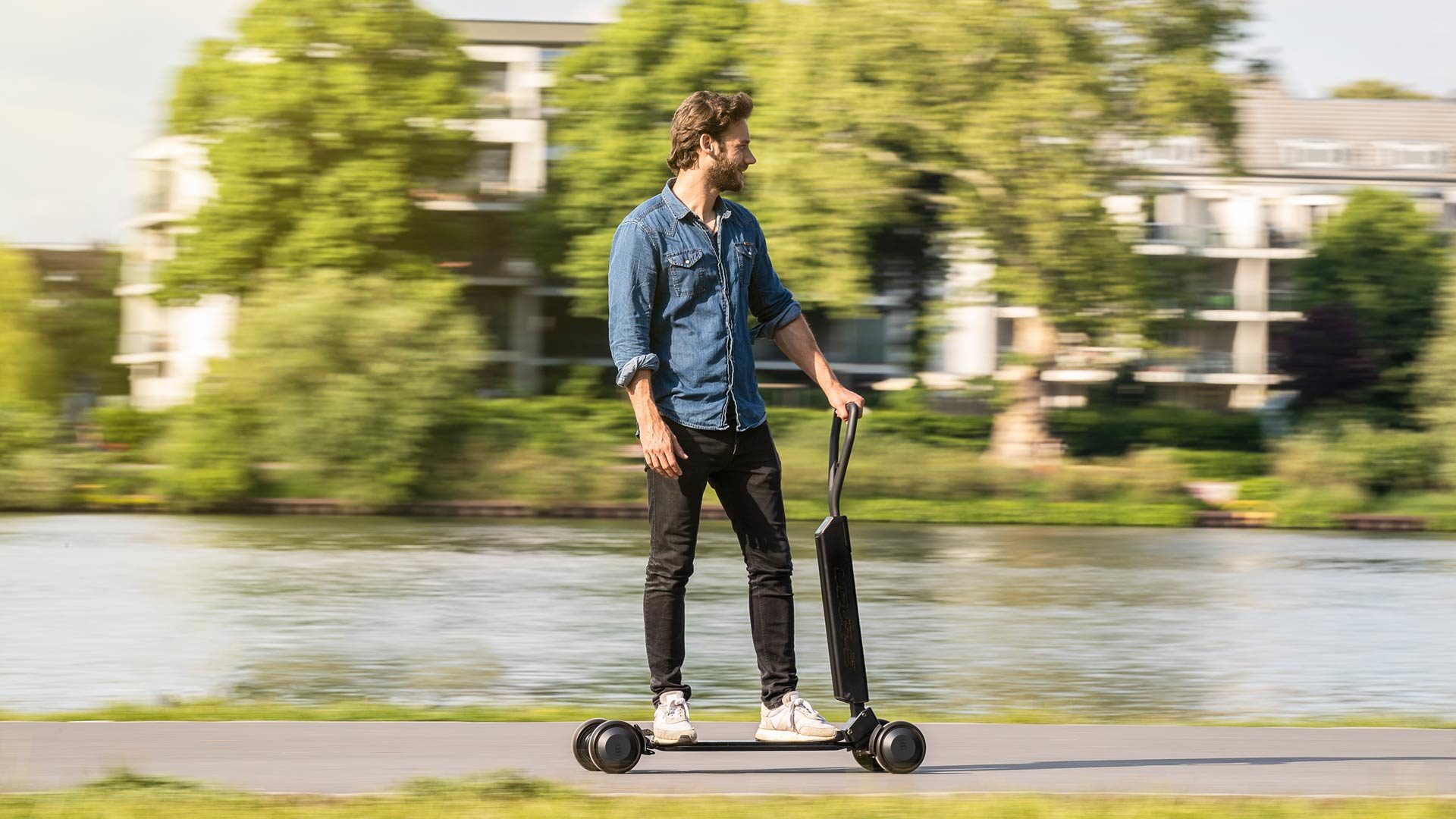
As a motor vehicle, using a powered transporter like an e-scooter on the road means the rider could be subject to prosecution for breaking a range of traffic laws.
In particular, offences for driving without a valid licence, or driving without insurance, would be the most serious. This could result in fines, penalty points, or even disqualification from driving.
Using an e-scooter in an anti-social manner could see a warning issued under section 59 of the Police Reform Act 2002.
Where in the UK can I legally use an e-scooter?
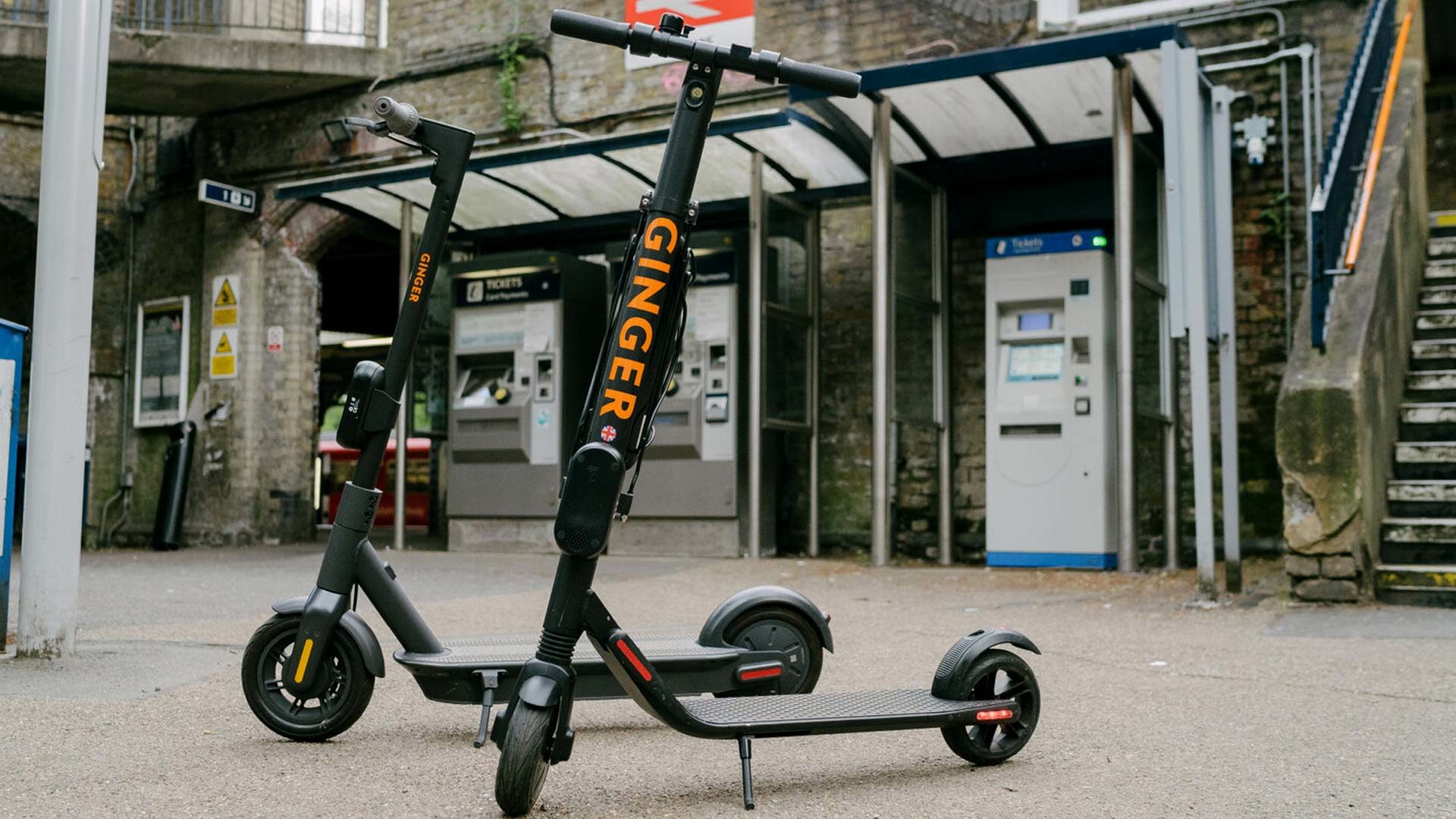
The Tees Valley in the North East became the first location of an official e-scooter trial, with 50 vehicles made available to rent from July 2020.
Since then the government has fast-tracked new trial areas, with more than 25 towns and cities included. Rental charges and practices vary between each location.
Rental e-scooters can be ridden on the road in the designated trial area, but not on motorways. Cycle lanes can also be used, but pavements are still off-limits.
How can I use an e-scooter in official UK trials?
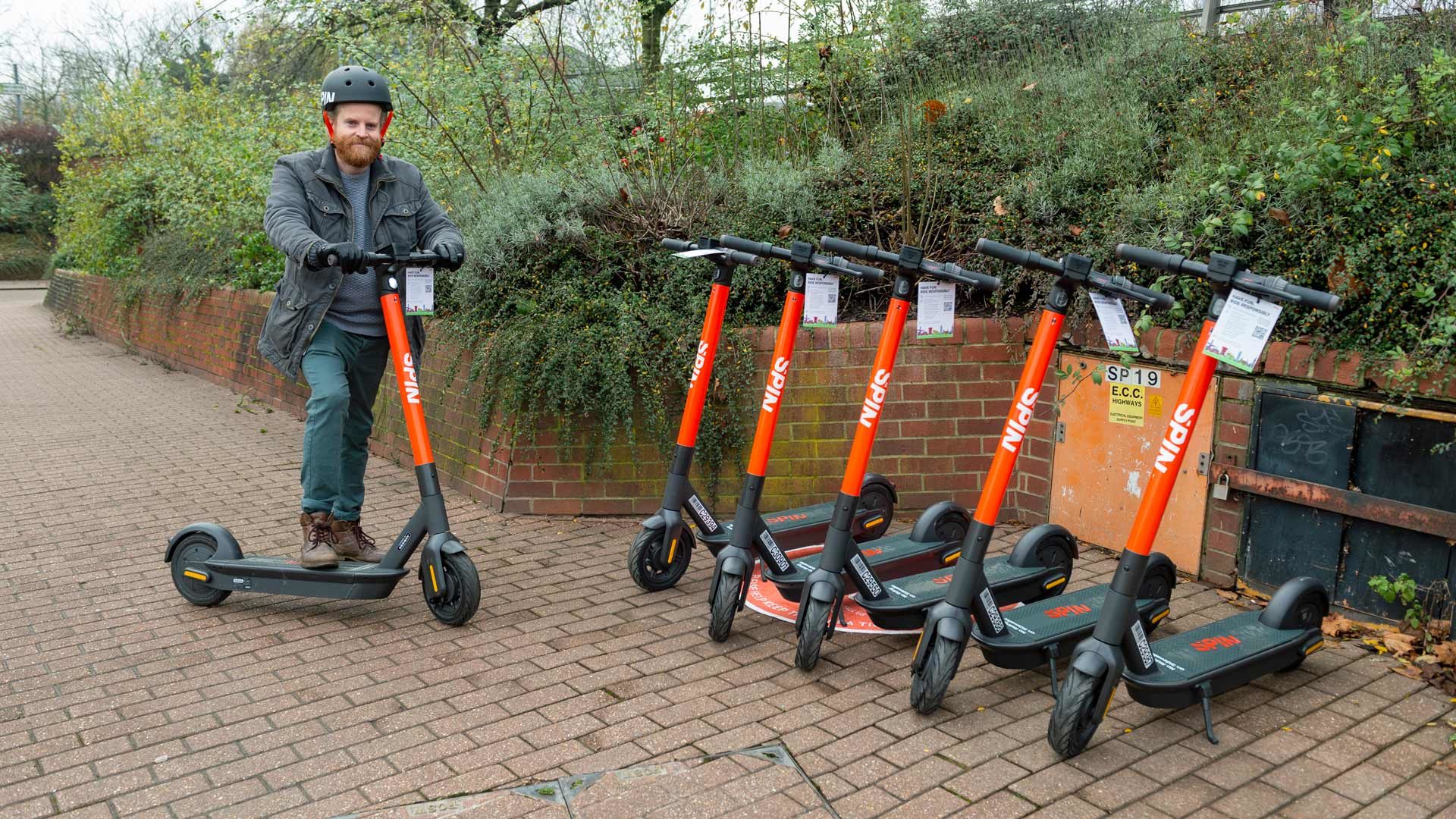
To use one of the rental e-scooters in a special trial area, riders need to hold a full or provisional driving licence with a category Q entitlement.
Insurance will be provided by the e-scooter rental operator. Most schemes use smartphone-based apps to reserve and pay for an e-scooter. However, you should not use your smartphone while actually riding.
Laws on drink and drug driving apply to trial e-scooters, as do those for inconsiderate and dangerous driving.
Continuing to ride a rental e-scooter outside of the set trial area is an illegal use of a motor vehicle – and you would risk prosecution for insurance and driving licence offences.
ALSO READ:
Low Traffic Neighbourhoods: what are they and why are they so controversial?
I’ve seen e-scooters ridden on roads and pavements in my area mainly by teenage boys who have no regard for pedestrians or car drivers